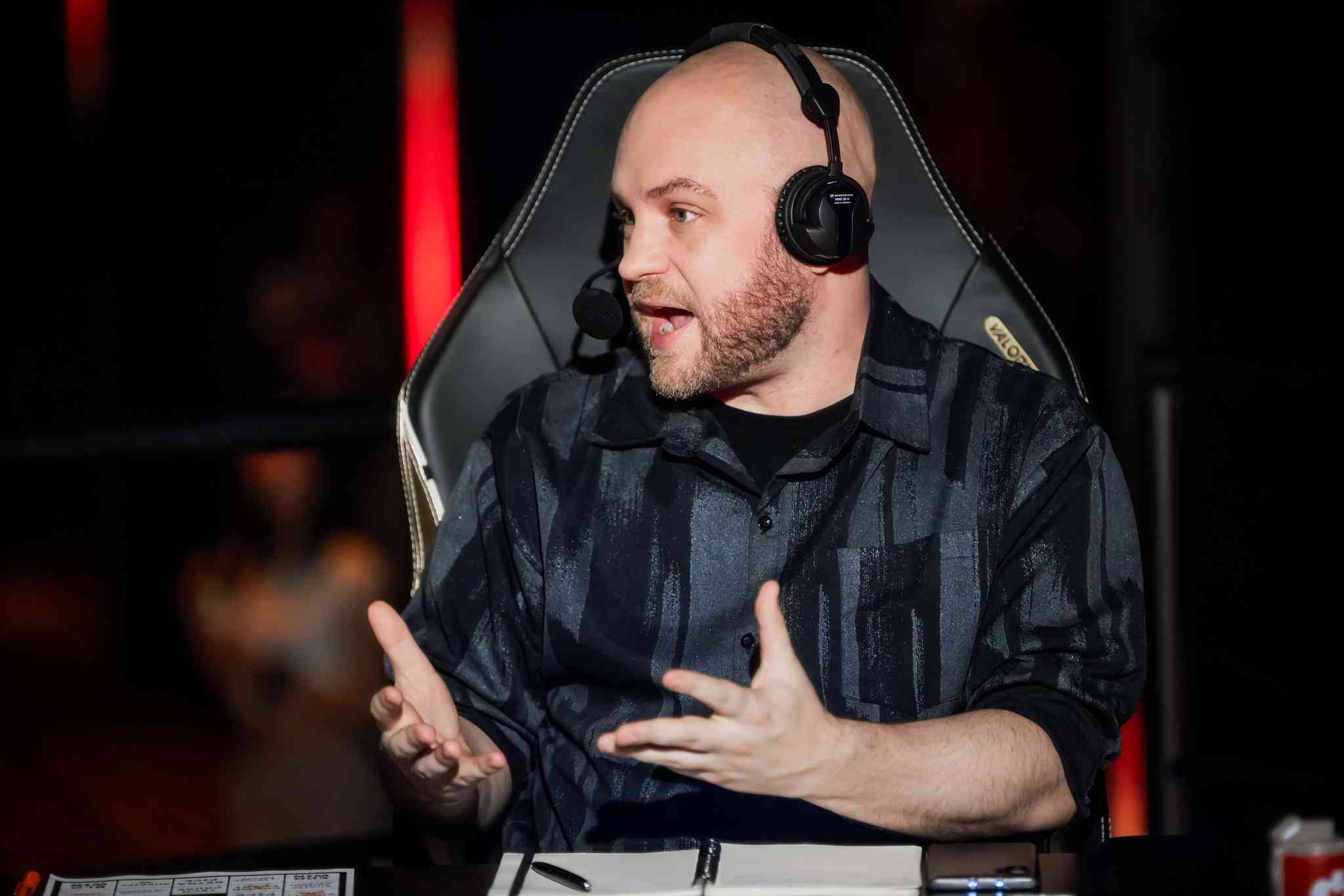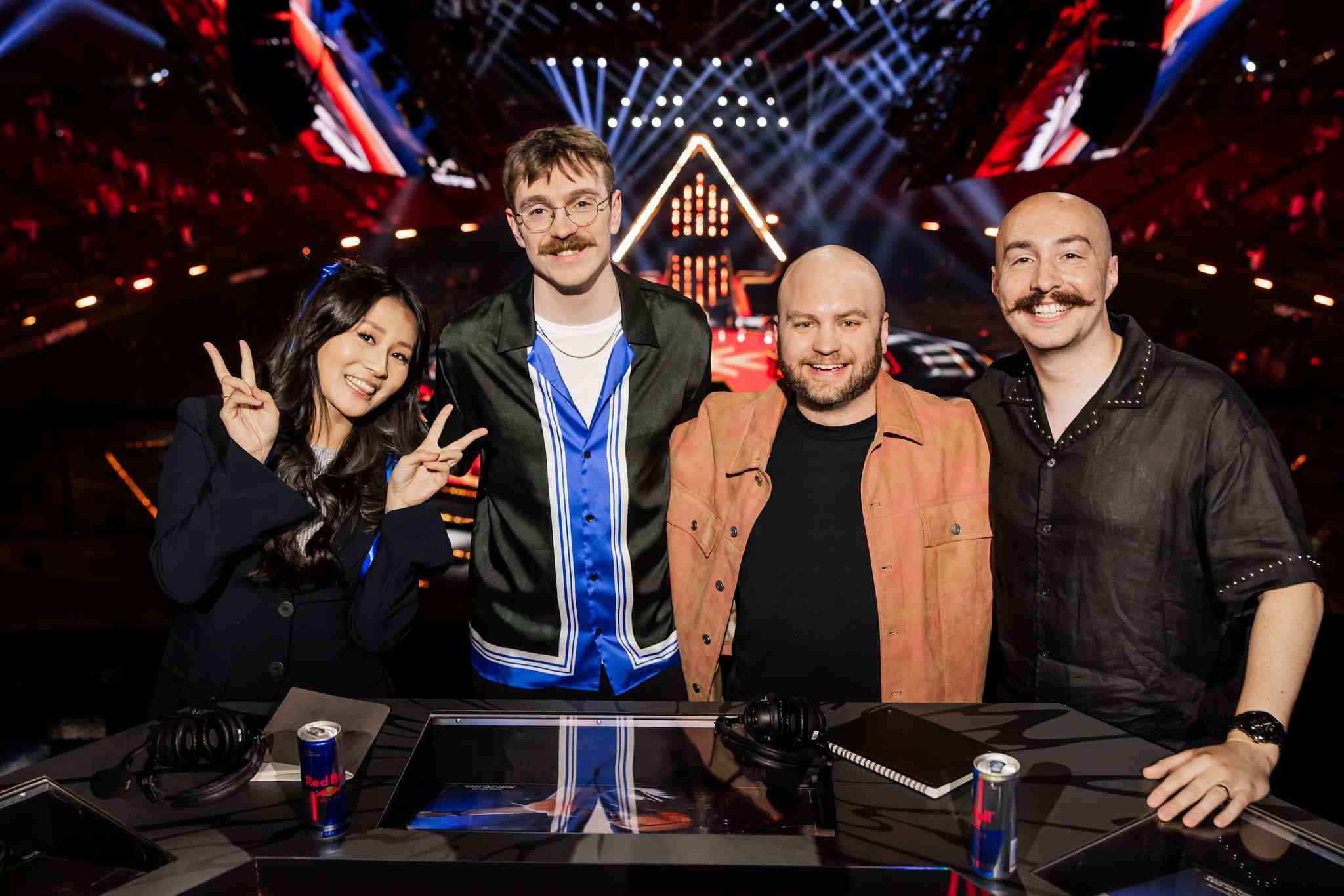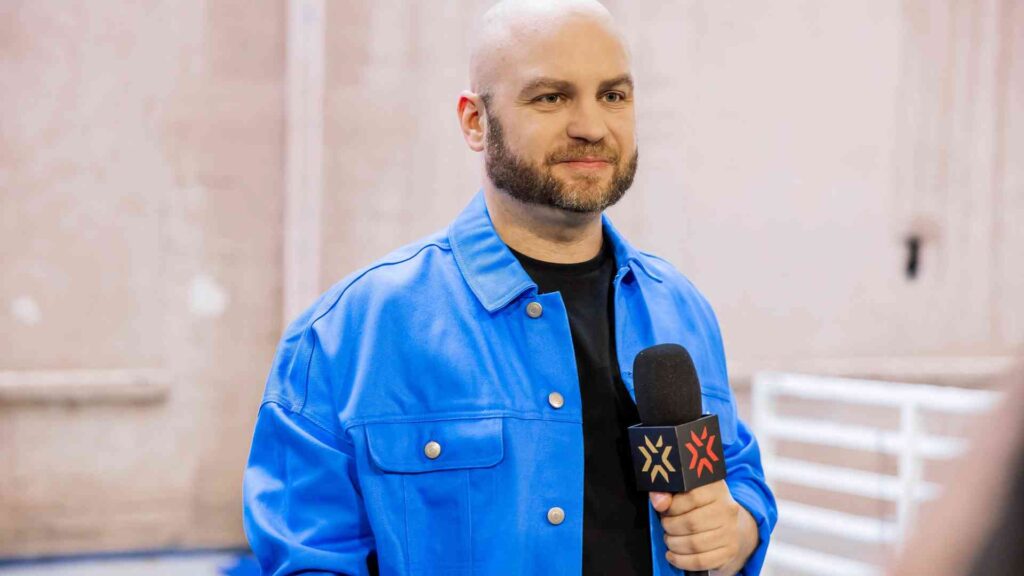The 2023 edition of Valorant Champions was staged in Los Angeles, California, marking the first time an international VCT event was held in North America, the place where the game was first developed. Since the game’s launch, it helped spawn a myriad of great teams and players, a small number of which would eventually go on to become champions during their heyday.
Likewise, the event created an opportunity for talent to showcase their skills during live broadcasts. Among those able to make a name for themselves is American commentator Clinton ‘Paperthin’ Bader, who started covering the game in 2020 for First Strike Korea while working in other FPS titles like PUBG. Since then, he’s gone on to appear in various other VCT tournaments like Champions 2021, 2022 Korea Challengers, the 2023 Pacific League, Masters Tokyo and Champions 2023, all the while establishing himself as a respectable English-speaking personality.
In the first part of BLIX’s interview with Paperthin, he talks about his experience covering Champions 2023 in Los Angeles, how he views Paper Rex in the tournament, how he differentiates the casters within the Pacific, EMEA and Americas leagues and more.
You can find the second part of the interview with Paperthin here.
Contents
Covering Champions 2023
Pedro Romero, BLIX: Thank you so much for taking the time, Paperthin. For this year, you’ve covered VCT Pacific, Masters Tokyo and now Champions here in Los Angeles. How do you look back at your growth from last year up until now?
Clinton “Paperthin” Bader: I think I’ve really focused on improving the understanding of the teams and thinking from a coach’s perspective. I’ve been working with a lot of coaches behind the scenes on what I should be identifying more and what things I should be looking at, so I think that helped me a lot this year. And obviously, having the Pacific league as well gives you a lot more reps and a lot more exposure to the different teams and different styles because, in the Pacific, we kind of have just about every type of play. ZETA plays more like a European team, right? We’ve got the crazy teams like Paper Rex, so you kind of get a good mix of everything, so I think all those things put together really kind of helped me improve this year.
BLIX: How would you compare your casting from last year, in which there were plenty of regions to cover, such as APAC, Korea and Japan and nowadays in the Pacific league since there’s now a centralized league and it’s not as scattered as before?
Paperthin: It’s been really good in that, overall, you get to experience a higher level of play, and you also get to be part of bigger moments and bigger stages. For the finals of VCT Pacific, we went to a stadium that held, I think, close to 2000 people or something like that. We get the experience to do that, and then that can transfer over to these big international events like here at The Forum, where we’ve got potentially 10,000 people. You embrace the opportunities and try to do the best you can with them. In Korea, it was fun. We had a great little league. We have a lot of our players that we like and those that we root for in the Ascension level and stuff like that, but now that we’re at the big stage, it’s just a really awesome step up and it’s been a lot of fun to cast.
BLIX: As for stepping up, you definitely have. We’re in the middle of a staircase and it’s a good representation of your career and ascension to a higher level and getting to the point where you were casting the upper bracket finals between PRX and EG. About that cast, though, how did you view your casting from that particular series?
Paperthin: I think it went really well. First of all, I gotta give a ton of credit to Achilios. He’s so easy to work with. He’s just a great guy and he’s a phenomenal caster. First and foremost, he makes it easy. In working with him, he’s very cool and he’s very chill. We get along really well. We vibe off of each other. We understand what we need to work on pretty quickly and identify those kinds of problems, so today was kind of the culmination of all of that. It went, I think, pretty good. I’ll never be happy truly with any cast. I always think there’s room for improvement but today was quite good. The games were great. The only thing you can hope as a caster is that you’re making the calls so good and well that they’re doing the players and the teams justice. They’re what matters, right? The players and the teams are truly what this is about. We’re just here to accentuate that and highlight that, so I think today we did as good as we’ve ever done.
Understanding Paper Rex
BLIX: You mentioned the many things you tried to cover and improve upon this year. What exactly are those things?
Paperthin: I’d say the two biggest things are compositional differences, like if there are different agent comps and how those will interact with each other and trying to understand and predict those a little bit better and then, secondly, is to understand what I call leading utility, which is utility that’s used to signal an execute or the direction that a team is thinking about going. For example, the Trailblazer or the Fault Line, things like that that actually are indicative of a team wanting to either make their execute, start their retake, or the direction and impact it will have. Those are probably two of the biggest things that I’ve really started to try to identify and work on and for most teams, those are pretty indicative of what they’re doing. Paper Rex is a bit of an anomaly sometimes but other than that, it has helped me get a better flow for the casting of the game.
 Paperthin knows more than anyone what it’s like to cast a Paper Rex series (Image Credits: Colin Young-Wolff/Riot Games)
Paperthin knows more than anyone what it’s like to cast a Paper Rex series (Image Credits: Colin Young-Wolff/Riot Games)BLIX: And I have to ask for your thoughts on Paper Rex, given that they’ve basically thrown a wrench in your preparation for matches. How much of an impact has PRX’s performance this year been on your casting, be it good or bad?
Paperthin: They’re hard to cast in a way because they’re so explosive and they’re so different from match to match. Even the way they play one map versus the next map is wildly different. Even the way Jinggg Blast Packs and when his Blast Packs changes map to map because they’ll work on things, either individually or in duos, in their rank games or practice and they’re hard to read because they change so much. They’re constantly changing what they’re doing and they’re constantly adapting so they’re improvisational skills are great so you have to match that as a caster. I think it’s fun to cast them because they really keep you on your toes but it’s difficult in a way to prepare for them, so a lot of what I’ve tried to do now is look at what they used to do and then apply to what’s changed.
BLIX: What is an occasion in which you’ve seen the biggest difference between what you expected to see out of this team and what they dished out during a match?
Paperthin: For me, first of all, obviously it’s something, right? He’s the first thing you think of. He’s so impactful with his Operator and the way he plays the Shorty, but I think for me, the biggest change has been d4v41 this year. Not only has he taken on more of a leadership role with the team, he’s done some IGLing and things like that. It’s kind of a IGL by committee with them, but d4v41 has stepped up a little bit. But not only that, he has been clutching like crazy so I think that’s adding another layer of depth to this team which already has tremendous depth, so for me, if you’re talking about the whole year, it’s the biggest change I’ve seen. Coming into this event, I think the biggest change would just be having something there. He’s really pushing them over the line in matches that they were close against some of these other teams like EG. CGRS played great at Tokyo, but now you have something and he’s on another level and you’re seeing the results.
Comparing the casters in Pacific, EMEA and Americas
BLIX: No doubt. You mentioned your talking with other coaches as a way to prepare yourself for your casts. How have you differentiated in talking to the coaches? And also, what are the coaches like in the Pacific League?
Paperthin: I think there are some really interesting personality differences between the coaches. like Ewok [Marthinius Walt], for example, from RRQ has a really positive energy. He really is focused on the fundamentals for his team. Warbirds [Evan Olzem; head coach for Team Secret] is actually pretty similar in that way where they, in the beginning of the year for those two teams, were getting the fundamentals down and trying to get them into good shape with their protocols and they talked about that in interviews and you can see the results. RRQ was so close to making it here.
Some of the coaches are much more structured like termi [Seon-ho Pyeon] was. He’s trying to change. A lot of people harp on termi but I will give him credit that he does try to adapt and he does try to learn from their mistakes. Sometimes, it takes too long. I would say it’s probably a knock-on effect. Alecks [Alexandre Sallé] is just a great people-person. He’s really good with the players. He’s really good with people. He’s one of the nicest guys you’ll ever meet. Even though he malds like crazy during the games, he’s actually super nice. Spin [Peter Bradford] for GE is really by the book, he’s really focused and he’s really good for structure and things like that. Basically, all the coaches are super nice. B0i [Aaron Thao] is super nice, who just joined for Talon, and is a really good guy. Honestly, in the Pacific, we’re pretty lucky. There isn’t a lot of drama and everybody kind of gets along so it’s pretty fun actually.
BLIX: It’s definitely good and it’s also another anomaly given the highly competitive nature that is the VCT for this year. can assume that since you’ve done Pacific this whole year, you were not able to have any time to observe Americas or EMEA. Were you able to do that?
Paperthin: Not as much as I’d like. The bigger problem is the time zones so I definitely can’t watch them live most of the time. I might be able to catch the beginning of EMEA and if I wake up early enough, I’ll catch the end of Americas, but a lot of times, the matches are on while I’m sleeping, frankly, so I’ll have to watch the VODs. I watched all the playoffs for both regions to make sure I was ready for them but it’s hard to give them as much of an analytical eye as I do to Pacific because I am just ingrained there. I still really like Fnatic and the way they play and I really like EG. I like these structured teams. EG has these great combo plays and Fnatic has, in my opinion, the best protocols in the business, so those kinds of things are cool to see and I like to try to take and learn from those too.
 Champions, like other international events, provides a chance for talent from all other the world to work together (Image Credits: Colin Young-Wolff/Riot Games)
Champions, like other international events, provides a chance for talent from all other the world to work together (Image Credits: Colin Young-Wolff/Riot Games)BLIX: I want to ask also on the casting front given that the Americas and EMEA have a vast array of well-known and distinguished casting pairs. You take that in comparison to Pacific then it’s essentially yourself and Achilios on the English-speaking front. When it comes to that, how would you compare yourself between your casting pair with Achilleas and then the other casting pairs within EMEA and Americas?
Paperthin: Personally, I rate Bren-Sideshow and Pansy-Hypoc very highly. I mean, it’s hard to compare because our styles are pretty different, which is a good thing. I think the strength of what Achilios and I can bring is that we’re kind of different from the other pairs and everybody’s different. Hypoc and Pansy are more different than Bren and Sideshow and we’re different than them. Personally, if you asked me, I’d say they’re better. I think, especially Pansy, she is the best play-by-play caster in the world right now, but that doesn’t mean there is room for all of us to do a good job and I think that’s what’s important. It’s having some different styles and some different insights into the teams in particular. That’s why it’s good to have one from each region because that way you get that insight for each region, so you really drill down into that. Truly, I don’t compare myself to people too much. I always compare myself to myself and I’m just focused on being the best I can be and that’s all I really care about.
You can find the second part of the interview with Paperthin here.


